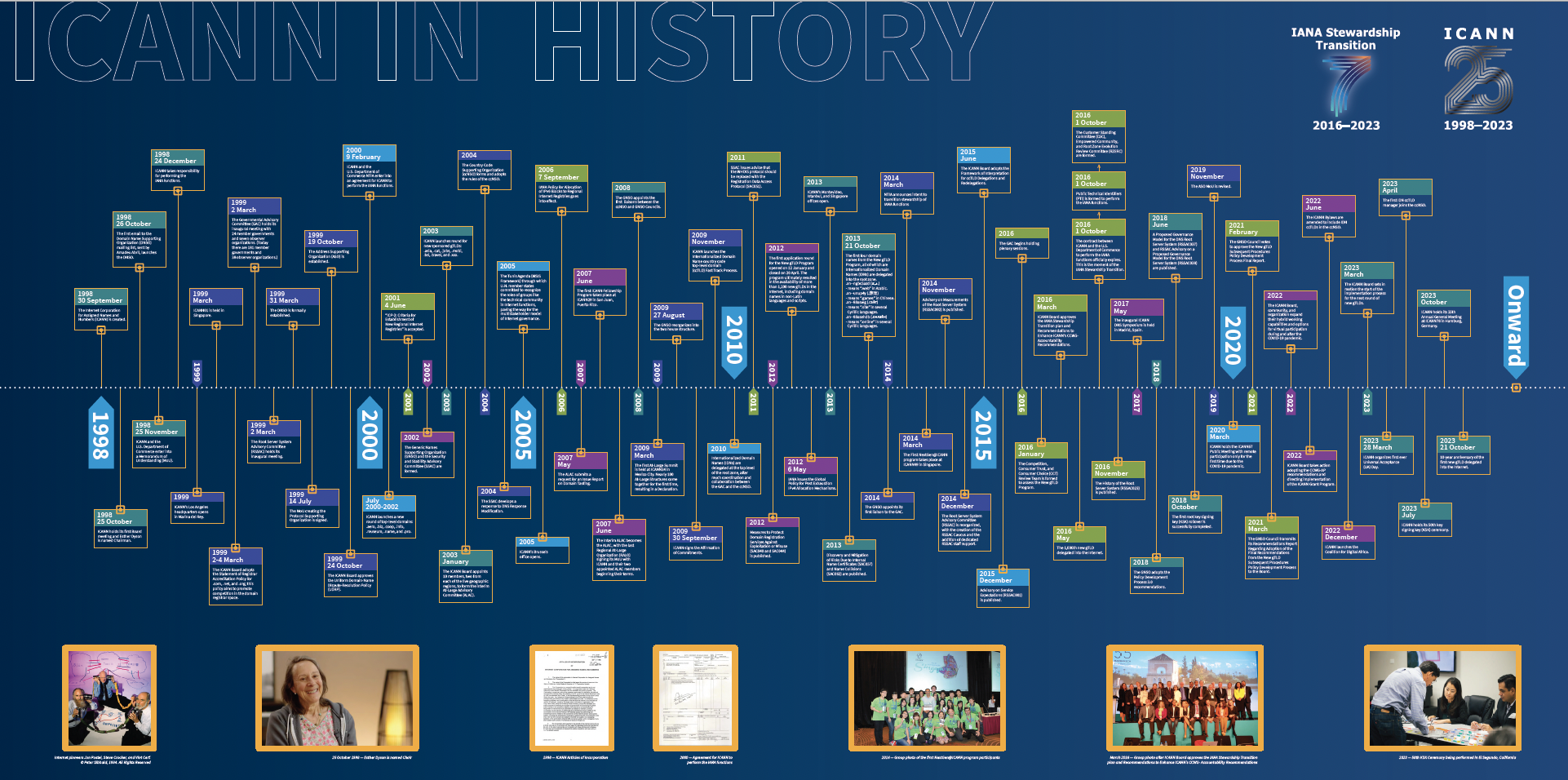ICANN Turns 25 (1998-2023)
ICANN History ProjectIn September of 2023, ICANN celebrated 25 years of international collaboration in overseeing the coordination of the Internet's naming system. Born from a vision of a unified and globally accessible Internet, ICANN's milestone reflects its unwavering commitment to maintaining this goal and recognizing the significant impact it holds. (For a detailed overview of ICANN's past achievements and future plans, visit the milestone timeline.)
Established in 1998 by the U.S. Department of Commerce, ICANN's enduring mission has been to ensure the stable and secure operation of the Internet's unique identifier systems including the Domain Name System (DNS). Its achievements stem from collaborative efforts that brought together technical experts, governments, civil society, businesses, and end users. Throughout the past two and a half decades, ICANN has been at the forefront of technical Internet governance and policy development, ensuring the stable and reliable technical operation of the Internet. Key milestones include the formation of crucial advisory committees and supporting organizations to ensure representation from governments, civil society, and technical communities to the introduction of more than 1,200 new generic top-level domains (gTLDs), and the global expansion of its operational offices.
Milestones that underscore ICANN's legacy include:
- Global Footprint: Since its first public meeting in Singapore in 1999, ICANN expanded its presence by establishing offices in Brussels, Istanbul, Montevideo, and Singapore, reflecting the makeup of the ICANN community.
- Expansion of the DNS: The introduction of new gTLDs in 2012 marked a significant expansion of the DNS, leading to enhanced innovation, competition, and diversification in the Internet's address system. This not only broadened the domain landscape, but also set the stage for ICANN's launch of Internationalized Domain Names (IDNs). These IDNs cater to and address the diverse linguistic and cultural needs of the global Internet community, allowing for domain names in native scripts and languages.
- Championing Universal Acceptance (UA) and Digital Inclusivity: The goal of UA is to enable everyone to use and communicate on the Internet via a domain name and email address that fits their language, business, and cultural needs. Internet-enabled applications and systems that are UA-ready can provide a path for the next billion users to come online. To emphasize its importance, ICANN launched UA Day on 28 March 2023 as an annual event, rallying communities worldwide to boost UA awareness and promote its adoption among key technical stakeholders.
- Steering Into the Future: Seven years have passed since the stewardship of the Internet Assigned Numbers Authority functions was transferred from the U.S. Government National Telecommunications and Information Administration to the global multistakeholder community. This transition exemplifies the organization's unwavering commitment to inclusive global governance and the drive to globalize the management of essential Internet resources.
- Safeguarding Security and Stability: Initiatives like the Domain Name System Security Extensions, introduced in 2005, and the Key Signing Key (KSK) Rollover in 2018, which marked its 50th ceremony earlier this year in July, underscore ICANN's dedication to maintaining the DNS's integrity.
As we celebrate this significant milestone, we extend our sincere appreciation to all stakeholders, including technical experts, the business community, civil society, academia, governments, and the global Internet community at large. You all have played an instrumental role in ICANN's journey.

